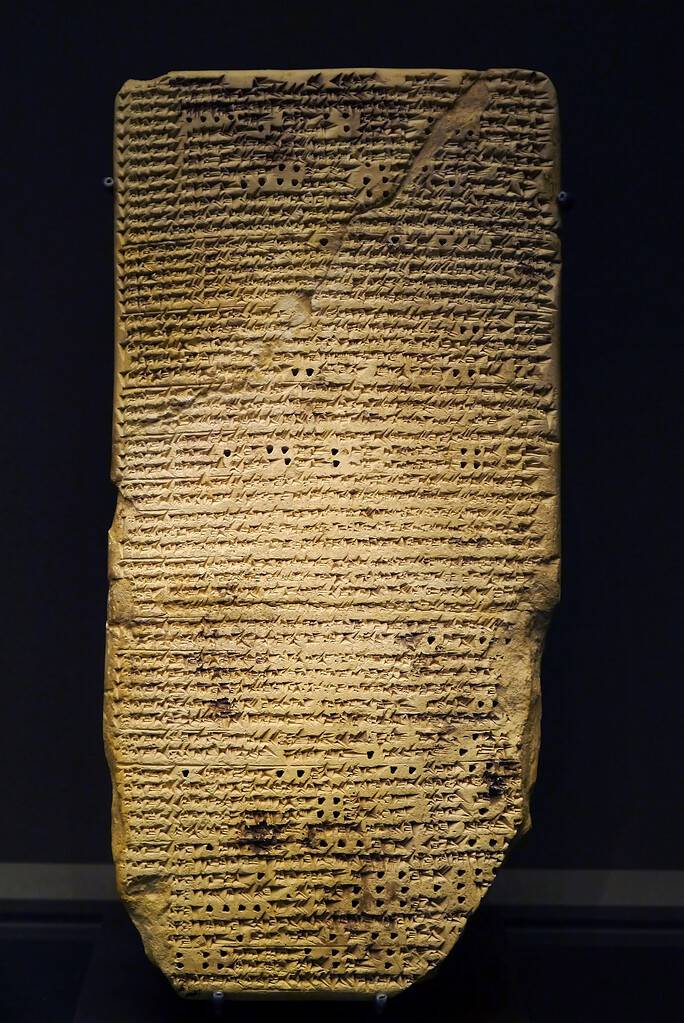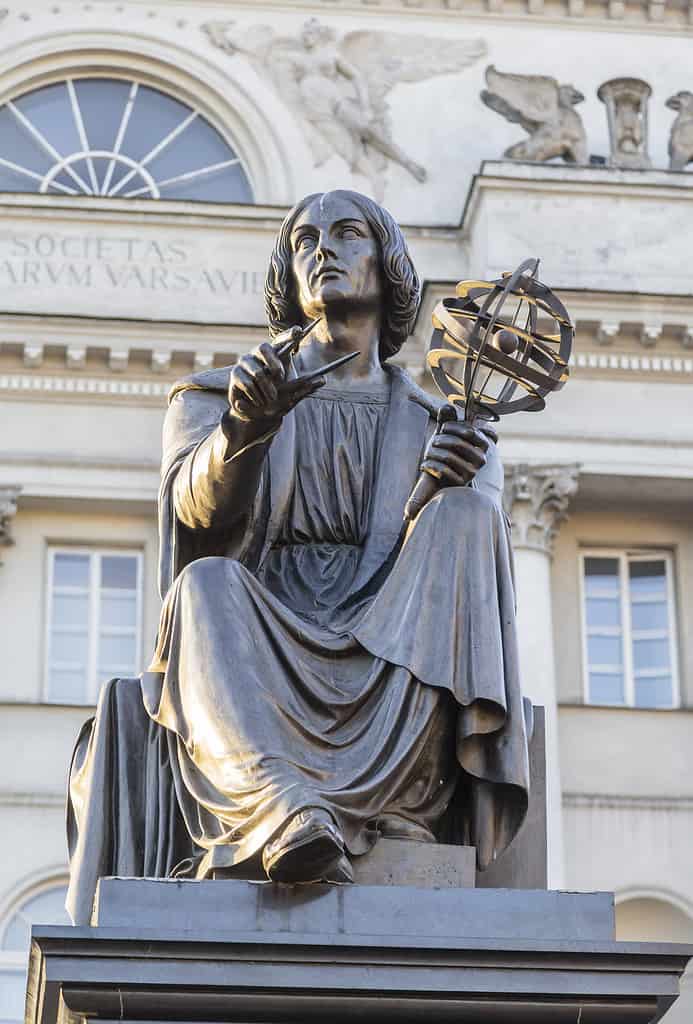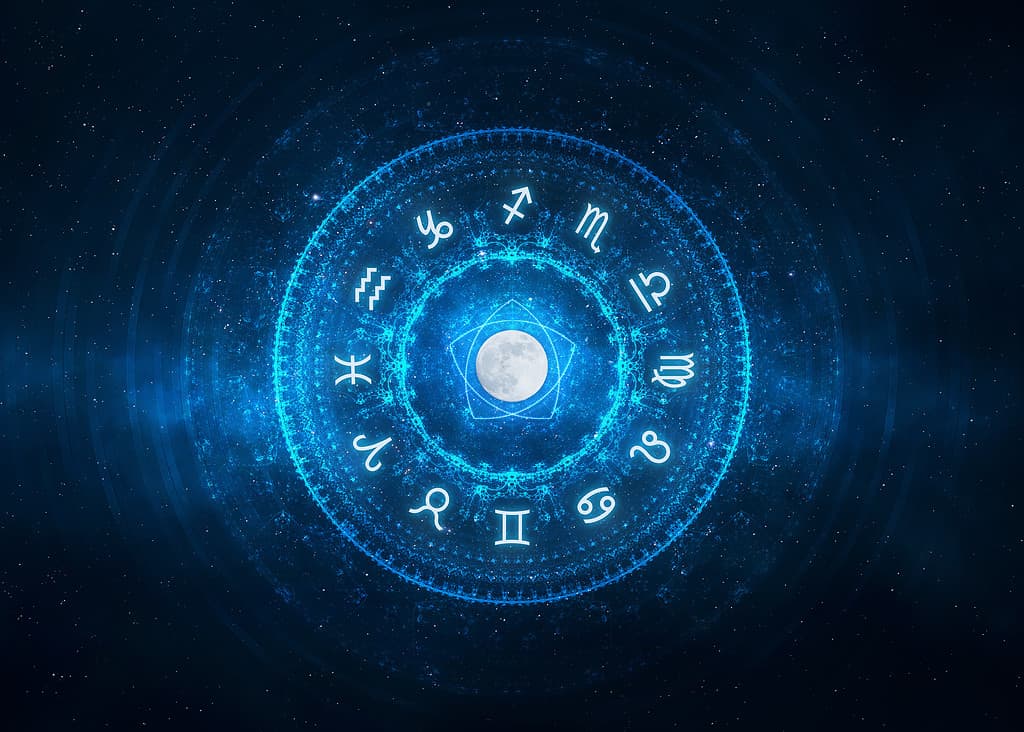In ancient times, astronomy and astrology were one and the same. Ancient people believed many different things about the sky and the mysterious bodies that moved through it at nighttime. Today, astronomy is a physical science. Astronomers study scientific aspects of planets and stars, along with everything about the cosmos. Astrology, on the other hand, is a metaphysical practice that doesn’t have a basis in scientific fact but is instead based on thousands of years of patterns between the stars, nature, and human behavior. When, why, and how did astronomy and astrology diverge?
Astrological and Astronomical Beginnings

This Babylonian tablet with cuneiform writing has information about astrology on it.
The earliest recorded form of astrology and astronomy is from Ancient Babylonia. This society was at its height from around 1900 BCE until around 540 BCE. Astrology likely existed in some form in Ancient Sumeria before this, but there is not enough recorded evidence to confirm it as a fact. In Babylonia, the job of an astronomer/astrologer were one. The person with this job was expected to predict and track the movement of the planets and the stars, in addition to interpreting their meaning.
Even though our current system of astrology is largely based on Greek and Roman astrology, when astrology first came to ancient Greece from Babylonia, it wasn’t always accepted. Some scientific figures focused only on the scientific side of the topic, and others criticized astrology. Even so, astrology took deep hold in Greek culture and the average Ancient Greek used the terms for astronomy and astrology with the same meaning.
Astrology’s Spread Around the World
Later, Hellenistic (Greek) astrology spread to the Roman Empire, to the Arabic world, and to Eastern countries like India. This is why so many cultures have similar astrological systems. While Chinese astrology is its own independent system, a few ancient poems reference Babylonian astrology, showing that it was at least known about that far away.
After the fall of the Roman Empire, astrology fell in and out of favor in medieval Europe depending on the whims of whatever royal family was in charge. If the royals enjoyed it, then it was in favor. If they weren’t into it, then it wasn’t. Making things further complicated here was that Christianity had a stronger influence than ever. The Church believed that Greek astronomy was hazardous to one’s spirituality. However, astrological texts spread throughout Europe and were still popular despite the church’s influence.
In Medieval Europe, the convergence of science and astrology continued. In some places, doctors were required to check the moon’s position before doing certain procedures. However, towards the end of the Renaissance, things started to change as humans gained a greater understanding of our solar system and universe.
How Did Astrology and Astronomy Split?

This statue in Warsaw, Poland depicts Nicolas Copernicus, an astronomer.
©Stavrida/iStock via Getty Images
Starting around the 1600s, people of science started to focus more solely on astronomy. Sir Isaac Newton and Copernicus, two astronomers of that era, both focused on the scientific perspectives of our surroundings rather than their metaphysical meaning. As human understanding of the science behind astronomy strengthened, astrology became more of a metaphysical science. It was no longer required for scientific people to have a connection to the meaning behind the planets and stars. Additionally, as timekeeping devices improved, people could test determinative astrological predictions more clearly. Many predictions turned out to be false.
Today, some people consider astrology to be a pseudoscience. Astrologers and scientists have tried to perform tests to determine if people of the same type have the same astrological qualities, which have mostly failed. Some modern scientists believe that peoples’ identification with their astrological signs and chart has more to do with how being born in a certain season can affect you. In ancient times, these times corresponded with the Sun, Moon, and planets appearing to be in certain constellations. Thus, the associations were made.
However, many astrologers and astrology enthusiasts do believe that the Sun, Moon, stars, and planets affect our personalities and our timing.
Whatever you believe, we would not have as much knowledge of the stars without astrology. In Ancient times, astrologers were responsible for tracking the planets and finding their repetitive patterns. Additionally, it was often an interest in astrology that led to funding for astronomical research.
Modern vs. Traditional Astrology

Today, western astrology has two main branches: traditional and modern.
©pixelparticle/iStock via Getty Images
Even within astrology, there are different ways of looking at things. Those who follow traditional or Hellenistic astrology still believe that people can predict future events or the best time to accomplish something. They believe astrology is determinative.
Modern astrology is much more based on psychology. Modern astrologers don’t necessarily use astrology for the purposes of prediction. They use astrology as a tool to help people learn more about themselves, find solutions to problems, and discover empowerment. There are infinite ways that astrological symbols and placements can manifest. Those who study modern astrology believe it is a tool to gain insight and understanding of our wounds, and how we can work towards healing in this lifetime.
The photo featured at the top of this post is © pixelparticle/iStock via Getty Images
Thank you for reading! Have some feedback for us? Contact the AZ Animals editorial team.






